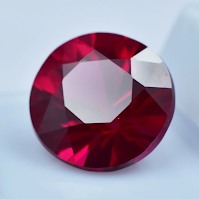Natural Ruby is Gaining Popularity Among High-End Lifestyle Buyers
Introduction to Natural Ruby
When it comes to luxurious gemstones, natural ruby stands tall as one of the most coveted. Known for its rich red hue and timeless beauty, natural ruby has long been a symbol of passion, power, and prestige. But what exactly is a natural ruby? Simply put, it is a precious gemstone formed naturally over millions of years, composed primarily of corundum and colored red due to traces of chromium. Unlike synthetic or lab-created rubies, natural rubies boast unique imperfections that tell their own story, making each stone one of a kind.
The Rising Demand for Natural Ruby
In recent years, the demand for natural ruby has soared, especially among high-end lifestyle buyers who seek exclusive and rare items that stand apart. This surge is influenced by shifting market trends where luxury consumers value authenticity and heritage more than ever. Natural rubies are becoming the centerpiece in bespoke jewelry collections, coveted not only for their beauty but also for their rarity and investment value.
Unique Characteristics of Natural Ruby
What makes natural rubies so special?
Reasons behind it:
Color and Clarity: The hallmark of a fine ruby is its vibrant, deep red color, often described as "pigeon blood red." Clarity varies, and while flawless stones are rare, tiny inclusions add character without compromising beauty.
Durability and Hardness: Ranking 9 on the Mohs scale, rubies are incredibly durable, perfect for everyday luxury jewelry.
Rarity and Value: Natural rubies, especially those free from treatment, are scarce. Their rarity drives up their value, attracting collectors and investors alike.
Natural Ruby vs. Synthetic Rubies
While synthetic rubies can mimic the look of natural ones, there are clear differences:
Synthetic rubies are lab-created, often flawless, and less expensive.
Natural rubies carry unique inclusions and a natural provenance that synthetic stones lack.
High-end buyers prefer real ruby to maintain authenticity and exclusivity.
The Role of RealRuby in the Luxury Market
Authenticity is king in the luxury world. Realruby gems are trusted for their genuine origin and enduring quality. Buyers who invest in natural ruby jewelry often seek certification to verify their purchase. These rubies frequently feature in designer collections and custom pieces, underscoring their importance in high-end fashion.
RubyGems and Their Cultural Significance
Ancient royalty believed rubies brought protection and prosperity.
Today, rubies continue to symbolize love and courage in modern fashion.
Celebrities and influencers often showcase ruby jewelry, further boosting its demand.
RareGems: The Appeal of Rarity
Luxury buyers are often drawn to rare gems because owning something rare feels like possessing a piece of history. Natural rubies, especially untreated and large stones, fit this bill perfectly. They serve not just as beautiful adornments but also as tangible assets that appreciate over time.
How to Identify Real Natural Ruby
Spotting a real natural ruby requires knowledge and care:
Look for natural inclusions under magnification—these “fingerprints” confirm authenticity.
Be wary of overly perfect stones, which may be synthetic or treated.
Request certificates from reputable labs to ensure the ruby’s origin and treatment history.
Caring for Your Natural Ruby Jewelry
To keep your natural ruby shining bright:
Clean your ruby jewelry with mild soap and warm water.
Avoid harsh chemicals and ultrasonic cleaners if unsure.
Care for it properly to prevent scratches
Conclusion
In the world of luxury gemstones, natural ruby is more than just a gem—it’s a statement of elegance, rarity, and timeless value. With its unmatched color, durability, and cultural significance, it’s no surprise that natural ruby is gaining popularity among discerning high-end lifestyle buyers who want their jewelry to tell a story of authenticity and prestige.
Frequently Asked Questions (FAQs)
1. What makes a natural ruby valuable?
A natural ruby’s value is primarily determined by its color, clarity, size, and origin. The most prized rubies have a vivid “pigeon blood” red hue and are minimal in inclusions.
2. How can I be sure my ruby is real?
Look for natural inclusions and request certification from accredited gemological labs. Avoid stones that appear too perfect, as they might be synthetic or treated.
3. Are natural rubies a good investment?
Yes, natural rubies, especially rare and untreated ones, tend to appreciate over time, making them excellent investment gems.
4. What is the difference between a natural and synthetic ruby?
Natural rubies form over millions of years on Earth, showing natural inclusions. Synthetic rubies are created in labs and often appear flawless but lack natural provenance.



.jpg)

No comments:
Post a Comment